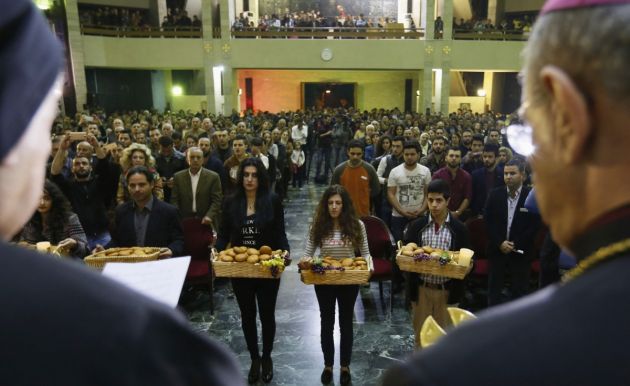'Bold steps needed' to give hope to Iraq groups facing uncertain future, says UN expert

GENEVA - The United Nations Special Rapporteur on minority issues has urged Iraq to take rapid steps to guarantee the future of some of the country's most threatened and marginalized ethnic and religious groups.
U.N. special expert on minority rights, Rita Izsák-Ndiaye has, however, highlighted that for many minority groups the challenges that they face did not begin with it, and will not end with the defeat of Daesh, IS or ISIS as the violent extremists waging terror there are called.
"Long-standing societal discrimination and marginalization of ethnic and religious groups must be more comprehensively acknowledged and confronted," the expert stated.
"A clear message must be sent to all of Iraq's diverse communities that they do have a future in Iraq.
"That message must come in the form of legal, policy and institutional protection frameworks with immediate and concrete measures to ensure their security, dignity, rights and equality," she emphasized.
"Due to years of marginalization, conflict, ethnic and religious tensions, and recent terrorism, communities seem to have lost trust in each other and in the government," said Izsák-Ndiaye.
"This trust needs to be re-built in order to keep Iraq's unique cultural heritage and diversity," she said in a statement at end of her first official visit to the country from Feb. 27 to March 7.
Her comments came soon after the Catholic News Agency reported that the U.S. State Department is under pressure to declare Christians as genocide victims at the hands of the Islamic State (ISIS).
On March 2, the U.S. House Foreign Affairs Committee passed a genocide resolution, becoming the latest body to call for a formal recognition of ISIS' actions as genocide.
"ISIS commits mass murder, beheadings, crucifixions, rape, torture, enslavement, and the kidnaping of children, among other atrocities," stated Ed Royce a Republican representative from California.
"So as ISIS destroys churches and other holy sites, they move closer towards eliminating certain communities," he added. "ISIS is guilty of genocide and it is time we speak the truth about their atrocities. I hope the administration and the world will do the same, before it's too late."
An amended version of another resolution supported by both the main parties labeling ISIS' atrocities committed against "Christians, Yezidis, and other ethnic and religious minorities" as war crimes, crimes against humanity, and genocide, passed unanimously through the House Committee on Foreign Affairs and will be put to a vote in Congress.
Meanwhile Izsák-Ndiaye visited Iraq in order to assess the situation of communities including the Baha'i, Christians, Faili Kurds, Kaka'i, Sabian Mandaeans, Shabak, Turkmen, Yezidis and Zoroastrians.
These groups constitute minority or "component' groups in the country and the UN report said they feel that their very existence in the country is threatened.
The U.N. expert visited Baghdad, Erbil and Dohuk, and their surroundings, including camps for internally displaced persons.
"While all communities have suffered in Iraq's recent history and under the criminal brutality of 'Daesh' (ISIL), many smaller ethnic and religious groups have borne the brunt of violence and atrocities and thousands have been displaced from their homes.
"They feel vulnerable and abandoned and many are questioning their continued existence in the country," she stated.
The Special Rapporteur spoke directly to community leaders who described the impact of violence and displacement on their communities.
YEZIDI WOMEN
She listened to stories of starvation, humiliation and sexual violence of Yezidi women who had been held captive by Daesh.
"It is truly heartrending that in the cradle of civilization, in the 21st century, I hear testimonies of targeted killings, slavery, and of a marketplace selling and buying women for as much as the price of a pack of cigarettes," Izsák-Ndiaye said.
"The perpetrators must be brought to justice to bring the immense suffering of these vulnerable communities to an end."
She urged concerted efforts to achieve the liberation of hundreds of women and girls still under captivity.
She also stressed the need for the protection of mass graves and other evidence that may prove atrocity crimes, for which perpetrators should be tried by an appropriate court of law.
The U.N. expert acknowledged that the clear and immediate danger posed by 'Daesh' must be confronted as a high priority of the Iraqi government.
However, she highlighted that for many minority groups the challenges that they face did not begin with it, and will not end with its defeat.